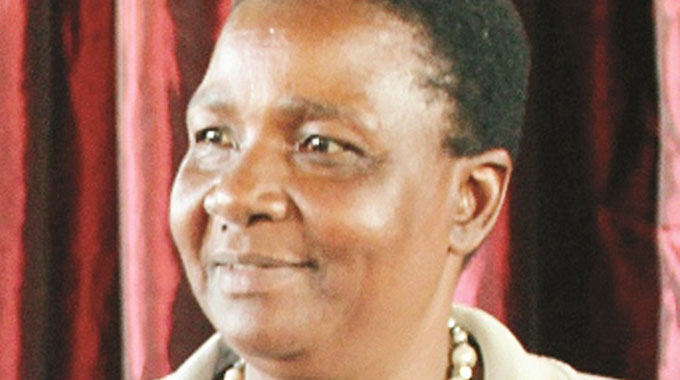Editorial Comment: As austerity ends, it’s time for real graft

The past year of austerity measures has been tough for most Zimbabweans, but was needed as we moved from a world of make-believe about to blow up in our faces into the real world where we have to work for our living and spend only what we earn.
Now we have to start moving forward from our real base, the one that has been uncovered, and that forward drive has to be anchored on production, not on consumption and even less on shuffling paperwork to create fake wealth and enrich a favoured few.
We need to grow more crops, raise more livestock, milk more cows, dig more minerals out of the earth, convert these crops and ores into desired raw materials, and then feed our secondary industries, just about the only factories that survived the meltdown of the last two decades.
This will create real wealth, and will create real jobs, not those fake jobs where people in suits pretend that signing their name or phoning their stockbroker creates wealth, rather than just moving money from the wallets of producers to the wallets of the hangers on.
This week Finance and Economic Development Minister Prof Mthuli Ncube presents his second Budget.
His first, last year, was one to stop the disaster. The one this year is his first for a real economy in a real country, and will obviously have to stress production, making it easier for hard-working Zimbabweans to push ahead and harder for those who want to take their money and spend it.
The achievements of that first Budget need, though, to be recognised. At the start of the Second Republic, the Government decided to end the lies, fairy tales and make believe. We were in far more serious trouble than we ever imagined with a Treasury borrowing money every month to pay salary bills, or more precisely printing money every month and pretending that it was printing real US dollars.
Our industry was just puttering, and most people acted as if we could borrow and consume our way out of poverty, with particular emphasis on consuming foreign goods.
President Mnangagwa saw the exploding disaster. He brought in top-end Zimbabwean technocrats and backed them to fix the mess. And they started delivering. The Government budget became a real benchmark, not a piece of polite fiction. Fiscal discipline saw an end to the era of print and spend, something we had already been through twice before and yet had never learned what to do correctly. Taxes were collected, and new taxes imposed, and the new taxes were on consumption this time round.
The result was a primary budget surplus for over a year, unheard of in independent Zimbabwe. That means the Government was paying its day-to-day expenses, including salaries, pensions and interest, out of taxes, not from borrowing or the printing press.
Zimbabwe is rich in natural resources, so it’s possible for us to produce our way to wealth and so achieve that vision of a middle-income country by 2030. The Budget this week must make it easier for our producers, not just harder for our consumers.
And it must do this while maintaining the fiscal discipline that we have suffered to achieve. We are already seeing what is possible. Command Agriculture, a Government policy to boost production on farms, has made a major difference, but the programme was not perfect and there was regrettable cheating and indiscipline as well as a problem of funding.
So the Government improved the programme. Discipline is being imposed. That in turn has attracted private banks into this field, since they know their depositors’ money will not be wasted, and that will have an extra virtue of keeping the pressure on for tight management.
A few industrialists in the food sector are at last starting to realise that raw materials do not come from the Reserve Bank of Zimbabwe. They come from farmers, and the only options open to industrialists are whether they pay foreign farmers or Zimbabwean farmers. So we are seeing the first tentative steps to expand contract farming to a lot more products.
Industrialists, in a country like Zimbabwe, need to control their entire supply, production and distribution chain. Doubters should ponder why Delta Corporation has the top market capitalisation. It contracts and supervises Zimbabwean farmers to produce all beer ingredients except the hops, and even there it has tried experiments in Nyanga.
It does its own production and its beer trucks can be seen in the smallest and most remote business centres in rural areas.
It seems obvious that if, for example, you are making cooking oil that you should have a few thousand farmers on contract growing soyabean, sunflower and other oil seeds so you are guaranteed a regular inflow of raw materials.
It seems obvious if you bake bread that you should have farmers growing your wheat every winter. It seems obvious that if you process milk that you should have Zimbabwean farmers milking cows, rather than tankers crossing Beitbridge.
But converting these obvious facts into reality requires investment, and that is where Prof Ncube can make it easier and can even create new channels for industrialists to do the right thing. Our primary industry has basically collapsed. We no longer bash metal, but we need to start processing our own minerals that investors have been mining and which more want to mine. It is not glamorous work, but it is work, real work. And that in turn will feed raw materials, and even finished products, into the secondary sectors.
All this will also generate surpluses for export, so long as we produce the right goods at the right price. We do not have to be a nation of importers and consumers. We can be a nation of producers and exporters. So as we close the era of pure austerity, let us consolidate the gains austerity gave us and start working to be rich, by growing mining and making things we and the world want.










Comments